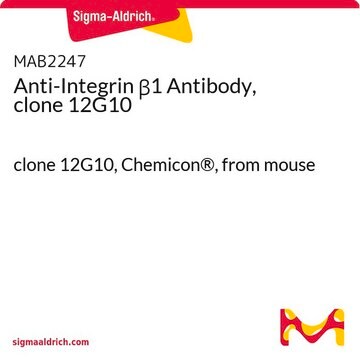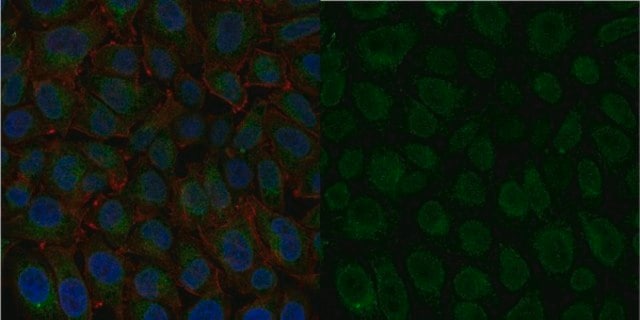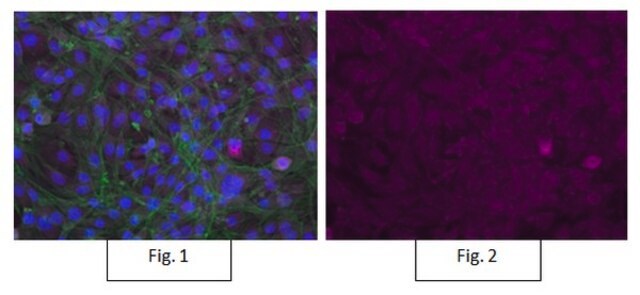MABT1502
Anti-Integrin beta-1 Antibody, clone 102DF5
clone 102DF5, from mouse
Synonyme(s) :
Fibronectin receptor subunit beta, Glycoprotein IIa, GPIIA, VLA-4 subunit beta, CD29
About This Item
Produits recommandés
Source biologique
mouse
Forme d'anticorps
purified antibody
Type de produit anticorps
primary antibodies
Clone
102DF5, monoclonal
Espèces réactives
human
Conditionnement
antibody small pack of 25 μg
Technique(s)
ELISA: suitable
flow cytometry: suitable
immunofluorescence: suitable
immunohistochemistry: suitable (paraffin)
immunoprecipitation (IP): suitable
western blot: suitable
Isotype
IgG1κ
Numéro d'accès NCBI
Numéro d'accès UniProt
Modification post-traductionnelle de la cible
unmodified
Informations sur le gène
human ... ITGB1(3688)
Description générale
Spécificité
Immunogène
Application
Immunofluorescence Analysis: A representative lot detected Integrin beta-1 in Immunofluorescence applications (Cartier-Michaud, A., et. al. (2012). PLoS One. 7(2):e32204; Balzac, F., et. al. (1993). J Cell Biol. 121(1):171-8; Lin, Y.N., et. al. (2015). Oncotarget. 6(21):18577-89).
Western Blotting Analysis: A representative lot detected Integrin beta-1 in Western Blotting applications (Balzac, F., et. al. (1993). J Cell Biol. 121(1):171-8).
ELISA Analysis: A representative lot detected Integrin beta-1 in ELISA applications (Jovanovic, M., et. al. (2010). Act Histochem. 112(1):34-41).
Immunoprecipitation Analysis: A representative lot immunoprecipitated Integrin beta-1 in Immunoprecipitation applications (Balzac, F., et. al. (1993). J Cell Biol. 121(1):171-8).
Cell Structure
Qualité
Immunohistochemistry (Paraffin) Analysis: A 1:250 dilution of this antibody detected Integrin beta-1 in human uterus and human kidney tissue sections.
Description de la cible
Forme physique
Stockage et stabilité
Autres remarques
Clause de non-responsabilité
Vous ne trouvez pas le bon produit ?
Essayez notre Outil de sélection de produits.
Code de la classe de stockage
12 - Non Combustible Liquids
Classe de danger pour l'eau (WGK)
WGK 1
Certificats d'analyse (COA)
Recherchez un Certificats d'analyse (COA) en saisissant le numéro de lot du produit. Les numéros de lot figurent sur l'étiquette du produit après les mots "Lot" ou "Batch".
Déjà en possession de ce produit ?
Retrouvez la documentation relative aux produits que vous avez récemment achetés dans la Bibliothèque de documents.
Notre équipe de scientifiques dispose d'une expérience dans tous les secteurs de la recherche, notamment en sciences de la vie, science des matériaux, synthèse chimique, chromatographie, analyse et dans de nombreux autres domaines..
Contacter notre Service technique








